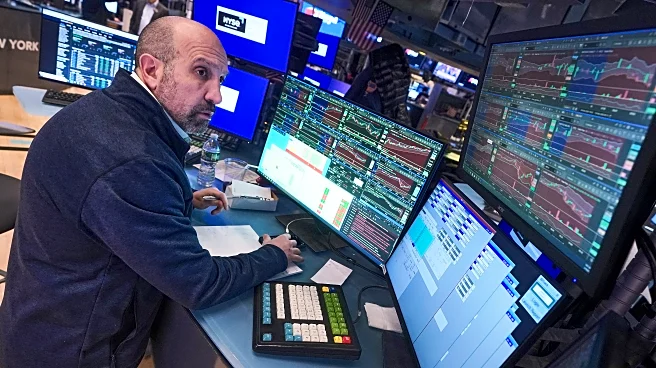What's Happening?
FedEx Supply Chain, a major employer in Tennessee, has announced plans to lay off 611 workers by October 11, 2025. This decision comes as part of broader economic adjustments within the company. The layoffs are part of a series of significant developments in the manufacturing sector, which also includes John Deere's acquisition of GUSS Automation, a company specializing in autonomous orchard sprayers. Additionally, Jaguar Land Rover has faced a cyberattack that has severely disrupted its production capabilities. These events highlight ongoing challenges in the manufacturing industry, including cybersecurity threats and economic pressures.
Why It's Important?
The layoffs at FedEx Supply Chain reflect broader economic challenges facing the manufacturing sector, including the impact of tariffs and supply chain disruptions. The reduction in workforce could have significant implications for the local economy in Tennessee, affecting hundreds of families and potentially leading to increased unemployment rates. The acquisition by John Deere indicates a strategic move towards automation and innovation in agriculture, which could lead to increased efficiency and reduced labor costs. Meanwhile, the cyberattack on Jaguar Land Rover underscores the growing importance of cybersecurity in protecting manufacturing operations from disruptions.
What's Next?
As FedEx implements these layoffs, affected workers will need to seek new employment opportunities, potentially leading to increased demand for job placement services and retraining programs. John Deere's acquisition of GUSS Automation may lead to further advancements in agricultural technology, with potential expansions in product offerings and market reach. Jaguar Land Rover will likely focus on strengthening its cybersecurity measures to prevent future disruptions. The manufacturing industry as a whole may continue to face challenges related to economic pressures and technological advancements, prompting companies to adapt and innovate.
Beyond the Headlines
The developments in the manufacturing sector highlight the ongoing shift towards automation and digitalization, which could lead to long-term changes in employment patterns and skill requirements. The focus on cybersecurity and innovation may drive increased investment in technology and infrastructure, potentially reshaping the industry's landscape. Ethical considerations regarding workforce reductions and the impact on local communities may also arise, prompting discussions on corporate responsibility and sustainable business practices.











